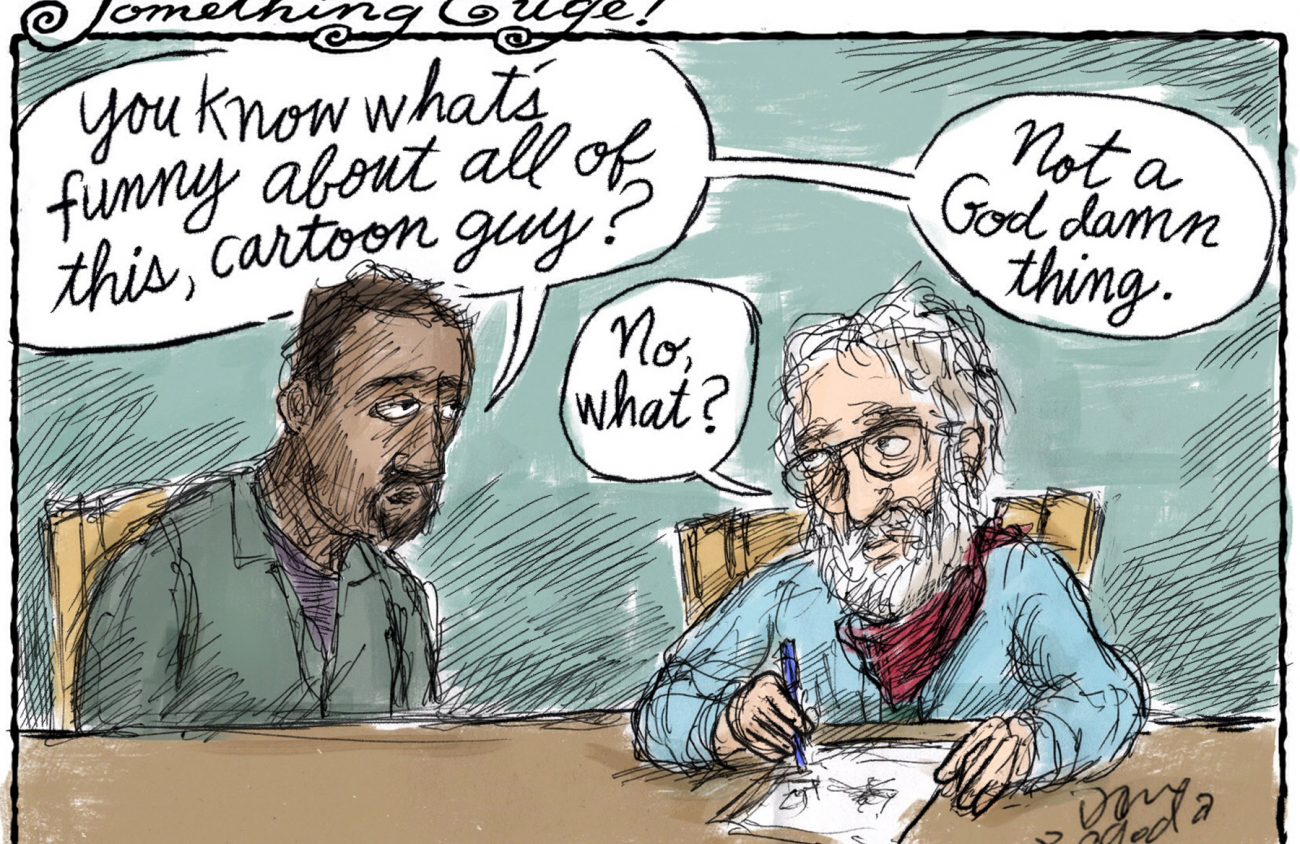• Over the past two weeks, journalists and news organizations have been stepping up and announcing that there are some things about which the media cannot be “neutral.” Racism is one of them. We agree. Contrary to certain public figures, there are no “good people on both sides” when it comes to racism. And while we have never been neutral on pretty much anything, we know, as do other newspapers, that we can do more. We are always open to suggestions:, editor@eugeneweekly.com.
• Eugene Weekly would like to announce that we will offer a funded diversity internship for 10-12 weeks this fall. The Google News Initiative Fellowship is aimed at developing and supporting students of color interested in careers in journalism. The reporting fellowship is open to college students and recent graduates and includes a travel stipend. More at NewsInitiative.withgoogle.com/training/fellowship-us.
• Speaking of funding, our wall is filling up with notes from readers who have supported us through the advertising loss during the global pandemic. We received grants from Google and Facebook as well as a Paycheck Protection Program loan. This means that your contributions don’t go to salaries, they are going towards printing the paper, and we thank you for helping keep us out there in those red boxes.
• The seven members of Oregon’s Supreme Court, led by Chief Justice Martha Walters, issued a powerful statement on June 5 that includes “starting points” to make changes in racial justice. Here’s their closing paragraph: “Identifying actions that we can take is, of course, easier than taking them. But taking them is a moral imperative. We live in a society that, as the Red Door Project, a project to change racial ecology through the arts, says, has been ‘ripped apart by the legacy of slavery and racism.’ It will take real commitment to bind those gaping wounds. In the August Wilson play Gem of the Ocean, Aunt Ester says, ‘You got to find a way to live in truth.’ By signing below, we commit to find our way.” That comes from the highest court in Oregon.
• Good for Eugene School District 4J for carrying on the ACE (A Champion in Education) Awards this spring, even if they had to be delivered virtually thanks to COVID-19. A record 165 staff and volunteers were nominated by parents, students and colleagues.These four winners were announced on June 2: teacher, Claire Kronser, art teacher at Monroe Middle School; classified staff, Laura Muco Naraguma, behavioral support assistant, Charlemagne French Immersion Elementary School; volunteer, Tom Mohr, Yujin Gakuen Japanese Immersion and Corridor Elementary School; administrator, Peter Tromba, principal at Spencer Butte Middle School. Londa Rochholz, principal at McCornack Elementary School, received a lifetime achievement award from the district.
• After a week of protests and marches throughout Eugene as well as city-imposed curfews that enabled police force last weekend, Lane County Commission Chair Heather Buch, along with the mayors of Eugene and Springfield, addressed residents on Friday, June 5. Buch delivered a speech that impressed Eugene Weekly. “Our nation as colonized was conceived with racism and inequity,” she said. “It remains culturally and systematically ingrained generation after generation.” Buch then pledged that the Lane County Board of Commissioners would vote on a resolution that would have actionable items, which was written by the county’s equity and access coordinator Mo Young. “We have had hundreds of years to talk and declare. It is time for action,” Buch said. The county commissioners voted unanimously in support of the resolution at their June 9 meeting.
• The City Club of Eugene persists in putting out fine virtual programs, available at noon on Fridays on their Facebook page, later on YouTube and again Mondays at 7 pm on KLCC. It’s a huge effort, but the June 5 forum was worth the work. Audrey Mechling from the Oregon Center for Public Policy; Ira Cuello-Martinez, Voz Workers’ Rights Education Project; Margarita Sandoval, a domestic worker; and Joel Iboa, CAUSA and Eugene’s Human Rights Commission chair, all talked about employment after the coronavirus. Given only in Spanish, Sandoval’s talk was translated by Iboa. What Iboa called the “deep structural inequities in our society” pretty well summed up employment both before and after the virus. Too many people working too hard and making too little.
